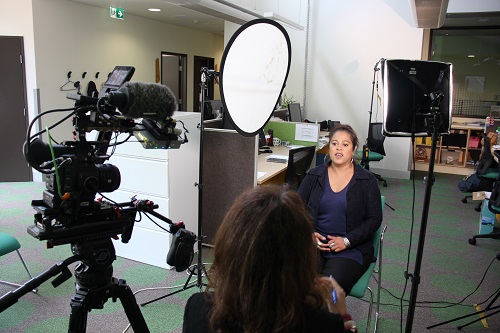CEH supports call for greater support for International Students as part of new Al-Jazeera documentary.
Co-manager of the Centre for Culture Ethnicity and Health (CEH) and chair of the International Student Sexual Health Network, Alison Coelho has called for more support for international students after the release of the documentary ‘Rape on Campus’ on the Al Jazeera network today.
The documentary examines sexual assault and harassment of international students enrolled in Australia’s higher education system. Nina Funnell, author of the recent Red Zone report and journalist Aela Callan were key drivers of the project.
Alison Coelho, who appears in the documentary describing some of the issues international students are currently facing, voices some of her concerns.
“CEH has been working with international students for many years, and this documentary highlights that all stakeholders should take the needs of students whom we seek out and invite to our country seriously,’ she said.
‘We speak to students, every day, who are worried about stigma when discussing their sexual health. Whether it is pregnancy, blood born viruses or dealing with unhealthy relationships, we know that many students are not able to make informed decisions about their health”.
“What is even worse is that they find it difficult to seek and get help when needed,” She said “We also know that these students face the biggest health challenges in the first twelve months of arriving in Australia.’ She said.
Australia has 540,000 international students currently. Higher Education is Australia’s third largest export and has a value of 18 billion dollars to Australia’s economy annually.
Alison argues a better approach is needed to be taken by all stakeholders, to improve this situation.
‘Better access to culturally, age-appropriate information about sexual health, alcohol and other drugs and healthy relationships can only improve wellbeing for international students,’ she said.
‘The federal government, through its recently introduced National Code of Practice for Providers of Education and Training to Overseas students, recognises this. If we can create an environment where students have better access to health care and quality information, we believe that international students will be much less likely to experience an unwanted pregnancy, sexual assault and exposure to sexually transmitted infections. “
CEH currently works with international students, to improve their access to health information. We specifically focus on blood-borne viruses, sexually transmitted infections, healthy relationships and other areas of sexual health.
For further information please contact Matthew Loads, Communications Coordinator, on 0403011174
Related Information
Connecting with communities using Health Literacy principles
Plain language is essential for effective communication. When health information is presented in plain language, it is easier for people to understand. This is particularly important when dealing with diverse communities where English may not be the first language for many residents.
Co-design: what, why and how?
We know that collaboration is an important step in engaging diverse communities in services, particularly those that face certain barriers such as linguistic and cultural differences, lack of awareness of services, and limited access to information. So, how can we collaborate with these communities? Read on for our thoughts.
The Arthur Kleinman Explanatory Model
This model was first proposed by Arthur Kleinman, who developed a set of eight questions to ask a client to learn more about their explanatory model to provide better patient-centered care.
Addressing challenges to work cross culturally; new cultural competence bundles
When there are gaps in cultural awareness and language, there are more misunderstandings, biases and sometimes compromised health outcomes. The good news is that there is so much we can do to be more prepared.

Let us inform you about our EVENTS & NEWS?

